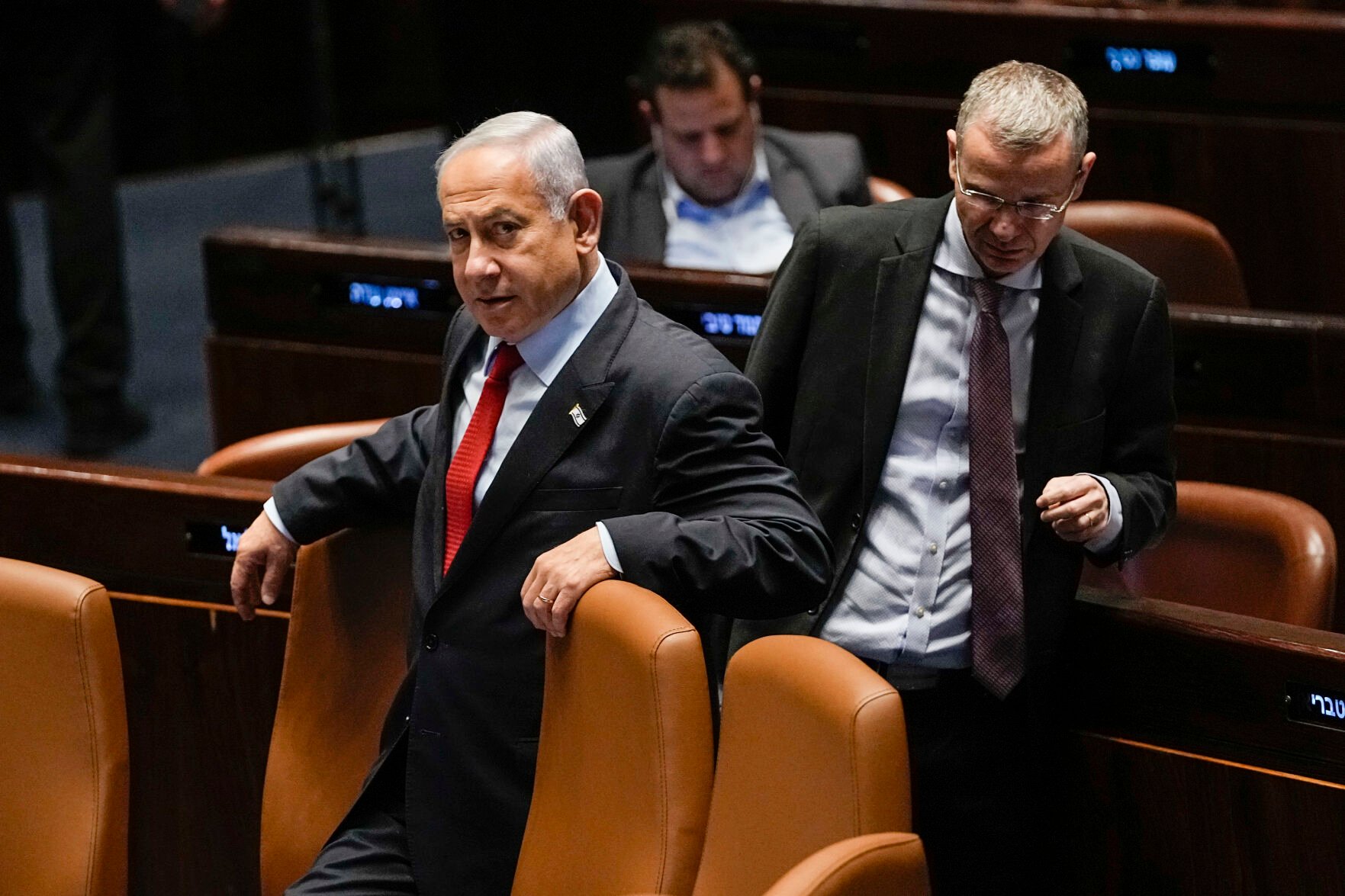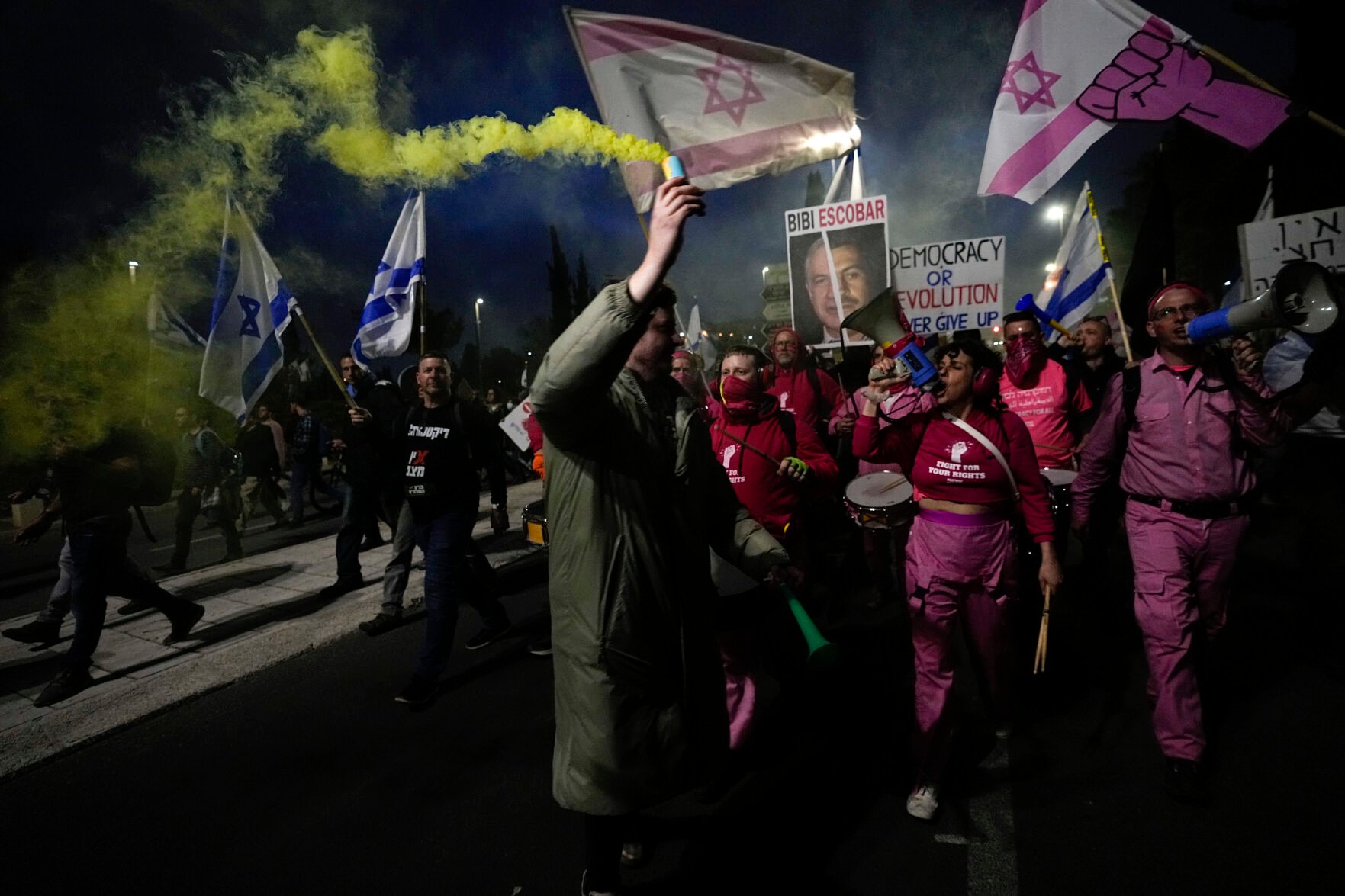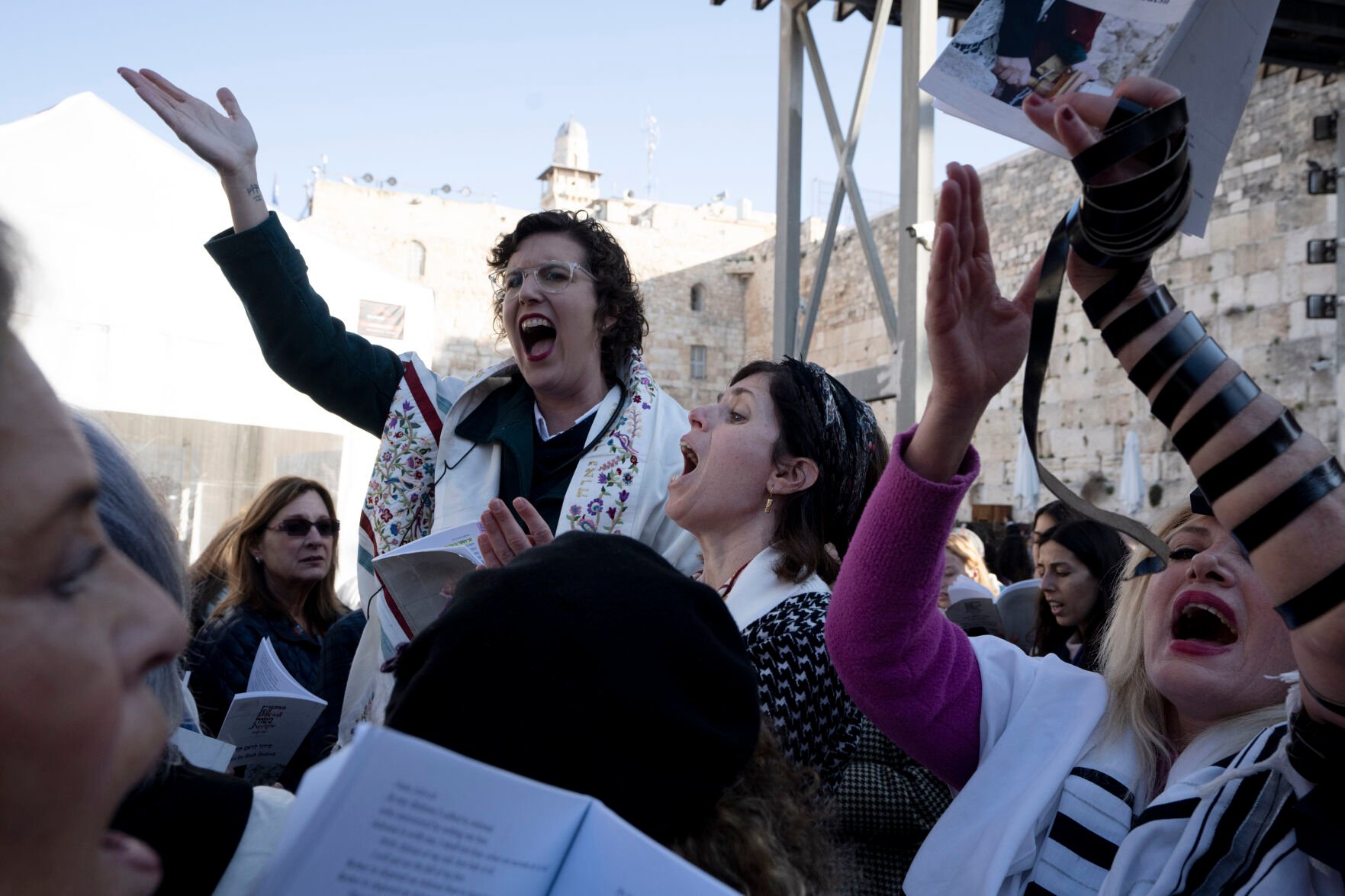Israel’s rightward shift is straining its ties with US Jews
An array of U.S. Jewish leaders are sounding alarms about what they see as a threat to Israel’s democracy posed by its new government, fearing it will erode the independence of its judiciary and legal protections for minority groups.
A solid majority of mainstream Jewish American groups are voicing unprecedented criticism of the Israeli government, raising fears about a growing rift.
Some progressives say Israel can never truly be a democracy as long as it rules over millions of Palestinians who do not have the right to vote.
The controversies come even amid a flare-up of deadly violence involving Israelis and Palestinians. On Wednesday, Israeli troops conducted a raid in the West Bank, triggering fighting that killed at least 11 Palestinians and wounded scores of others.
Likud party leader Benjamin Netanyahu took office as prime minister in December after the country’s fifth election in less than four years. His coalition includes ultra-Orthodox parties and ultranationalist parties dominated by hardline West Bank settlers.

Ohad Zwigenberg, Associated Press
Israeli Prime Minister Benjamin Netanyahu, left, and Israeli Justice Minister Yariv Levin, right, stand Wednesday in Israel's parliament, the Knesset, in Jerusalem.
Critics are alarmed about coalition members’ wish list of expanded settlements, narrowing the eligibility for would-be immigrants claiming Jewish heritage and restricting non-Orthodox access to a sacred site.
They see a planned judicial overhaul as threatening the checks and balances on Israel’s government — echoing concerns voiced by tens of thousands of Israeli street protesters in recent weeks.
“Here we are, about to celebrate the 75th anniversary of the Jewish democratic state of Israel that we love,” said Rabbi Rick Jacobs, president of the Union for Reform Judaism, a liberal denomination representing the largest U.S. Jewish religious population. Yet that anniversary is approaching amid fears for “the weakening of Israel’s democratic foundations,” he said.
The Knesset, controlled by Netanyahu and his allies, voted this week for bills that would give the governing coalition control over judicial appointments — currently made by an independent committee that includes lawyers, politicians and judges — and curtail the Supreme Court’s ability to review the legality of major legislation. The Knesset also voted to empower lawmakers to overturn high court decisions by simple majorities.
The bills require additional votes before becoming law.
Representatives of the influential American Jewish Committee urged Israeli government officials to consult with opposition leaders, judges and others, said Jason Isaacson, the AJC’s chief policy and political affairs officer.
“If you’re going to fundamentally alter a system that’s been in place for a number of years and guarantees the independence of the judicial system … do it carefully, do it slowly,” he said.

Ohad Zwigenberg, Associated Press
Israelis protest against plans by Prime Minister Benjamin Netanyahu's new government to overhaul the judicial system on Monday near the Knesset, Israel's parliament in Jerusalem.
Opponents say the proposals would push Israel toward a system like Hungary and Poland, where the executive wields control over all major levers of power.
There could be widely acceptable changes to judicial selection, Jacobs said, but current proposals will “cause deep harm to the structure of the rule of law.”
Attempts by Israel’s figurehead president to broker a compromise — efforts supported by many U.S. Jewish organizations — have failed to make headway.
A weakened court would particularly affect groups that have relied on judicial rulings for protections, including Palestinians, LGBTQ people and members of the more liberal Reform and Conservative streams of Judaism, whose ranks are small in Israel but comprise the majority of American Judaism.
The Jewish Federations of North America — which rarely comments on internal Israeli politics — opposed legislation that would give a simple Knesset majority power to override Supreme Court decisions. “The essence of democracy is both majority rule and protection of minority rights,” it said.
Irving Lebovics, co-chair of Am Echad, supports changes in the judiciary, though he said specifics can be negotiated. The Supreme Court, he said, has too much power in deciding both the law and its own membership. Am Echad, a branch of Agudath Israel of America, communicates with the Israeli government on concerns of American Orthodox Jews.
Some cabinet members also are seeking to narrow eligibility under the Law of Return that allows anyone with one Jewish grandparent to immigrate to Israel.

Maya Alleruzzo, Associated Press
Members of Women of the Wall sing Wednesday during Rosh Hodesh prayers marking the new month at the Western Wall, the holiest site where Jews can pray, in the Old City of Jerusalem.
There’s also talk of curbing the already limited space for egalitarian or mixed-gender prayer at Jerusalem’s Kotel, or Western Wall — the holiest place where Jews can pray, where most of the adjacent plaza is reserved for separate men’s and women’s sections as per Orthodox practice.
This has importance for visiting American Jews who want to pray at the wall in egalitarian worship.
Supporters of the progressive group Women of the Wall — who pray monthly in the women’s section using practices and vestments reserved to men in Orthodox Judaism — fear it will face new curbs.
Reform rabbis from the U.S. and other countries joined the Women of the Wall at their monthly gathering on Wednesday, parading with Torah scrolls.
Orthodox protesters, including teenagers, heckled and harassed the group.
“Under the most oppressive government in Israel’s history, the rights and dignity of not only all Jewish women but of all inhabitants of Israel must be respected, supported, and protected,” said Rabbi Hara Person, chief executive of the Central Conference of American Rabbis, the rabbinic arm of the Reform movement in the U.S.
